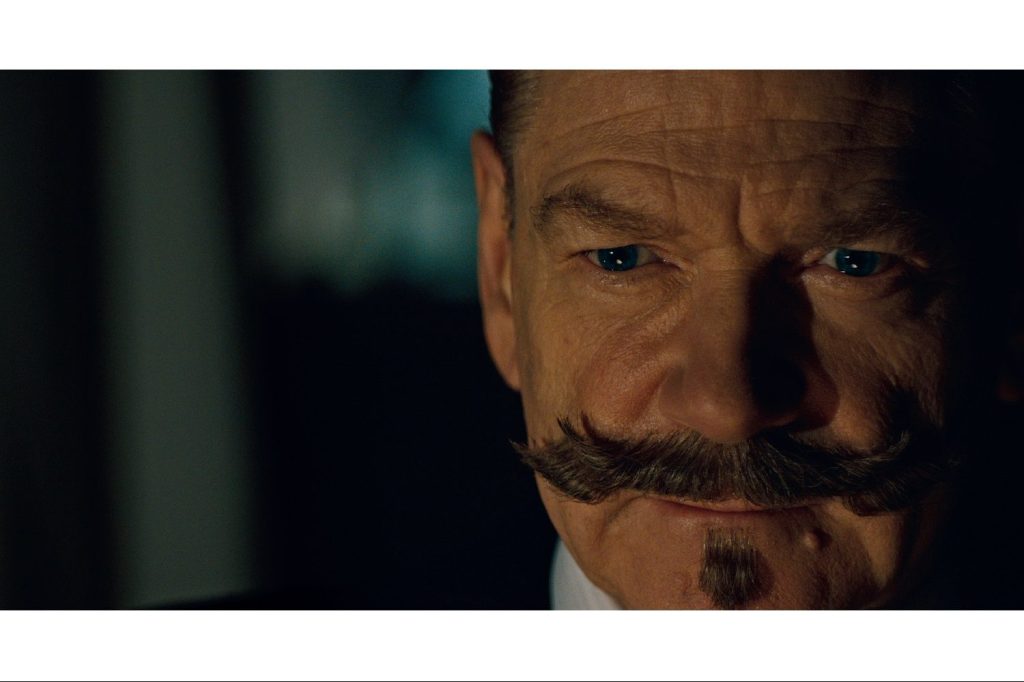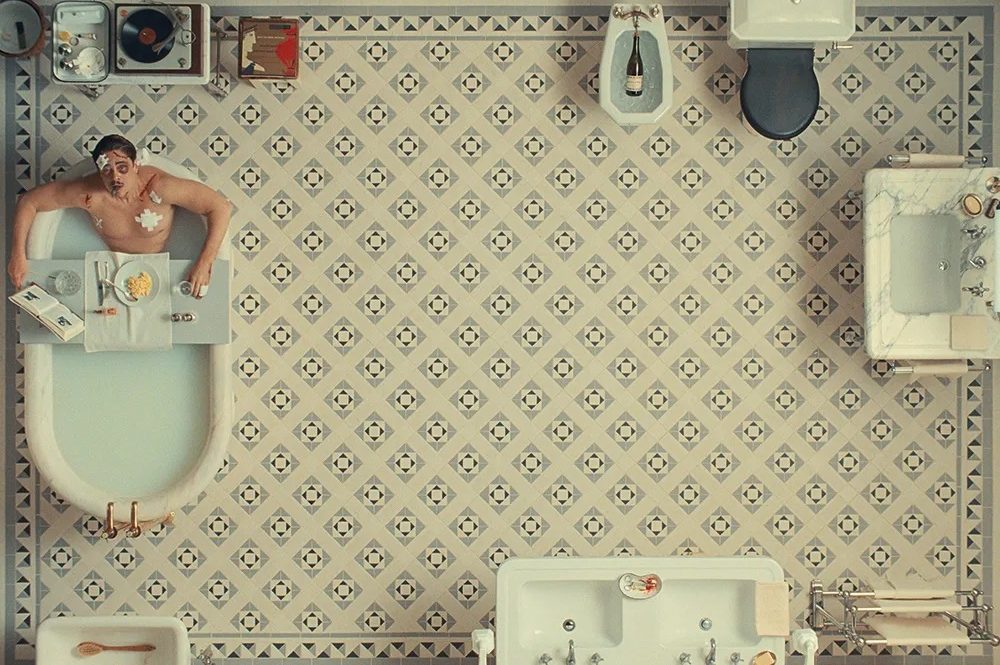Haunting in Venice is Kenneth Branagh’s third Poirot film (after Murder on the Orient Express and Death on the Nile) and as each one is worse than the last — you could say he’s on a losing streak. Why someone with Branagh’s résumé would persist, I don’t know. Why someone who has his dignity at heart hasn’t yet rugby tackled him to the ground while shouting “STOP!,” I also don’t know. That is the biggest mystery here.
The film is directed by Branagh, who yet again casts himself as Poirot even if we all know what Poirot looks like and that’s David Suchet. The first problem is that Hallowe’en Party, the Agatha Christie novel on which this is based, is set in an English village and goes nowhere. At the first mention of “Venice” someone should have rugby tackled Branagh while shouting “STOP!” He has also added some characters, dropped others, and changed the plot. But apart from that, it’s just like the book.
Why hasn’t someone rugby tackled Branagh to the ground while shouting ‘STOP!’?
The action takes place in 1947 with Poirot having moved to Venice for his retirement although you do have to wonder: will he be up for one more job? As he meticulously tends to his roof garden — I will say one thing for this Poirot: he grows very fine cavolo nero — he receives a visitor. It’s his old friend Ariadne Oliver (Tina Fey), the bestselling mystery writer. She convinces him to attend a séance in a palazzo to prove that the medium (Michelle Yeoh) is fake. The séance has been arranged by Rowena Drake (Kelly Reilly), an opera singer, who owns the palazzo and whose daughter, Alicia has jumped (or was she pushed?) from a balcony into the canal. The palazzo is grand but decaying, and is said to be haunted by vengeful children. Venice itself is misty, ghostly, all spooky carnival masks and rain, more rain, and yet more rain. If I had one dollar for every time the movie cuts to pouring rain I could jack in trying to keep awake during films such as this and retire to Venice myself. You think I don’t want to grow cavolo nero on a rooftop?
Anyway, before the night is out there is a murder, and then another murder, but by then all the suspects are long gone. Only kidding. “No one shall leave this house,” Poirot instructs, locking the doors. The suspects include Alicia’s caddish fiancé (Kyle Allen), a former police officer who is now Poirot’s bodyguard (Riccardo Scamarcio), a doctor (Jamie Dornan) and the housekeeper (Camille Cottin). It’s not as star-stuffed as previous outings yet it’s a decent cast who, in this situation, seem unable to breathe life into any of their characters. Performance-wise, it’s as if they didn’t even bother phoning it in as they got their assistant to do it, or their cleaner maybe. (“Lena, this week could you change the bedding and also phone in my part?”) On the other hand, they don’t stand a chance with Michael Green’s screenplay and lines like: “Rowena owns the palazzo but the ghosts possess it.”
It should be fun in a high camp way, like Death on the Nile (the one starring Peter Ustinov), but instead it’s leaden and wholly uninvolving as Branagh opts for telling it straight. On top of that there is the rain, the rain, the rain. There isn’t even any suspense or tension — although it’s not the person you least suspect (unless it is).
Branagh is over-hated, in my opinion, but he gives everyone an open goal with these adaptations. It’s inexplicable why he keeps turning them out, particularly when you consider that the previous two were hardly critical or box-office sensations. Perhaps we hit upon it when Ariadne tells Poirot that she’s written thirty books and “twenty-seven were bestsellers… damn the critics on the last three.” Maybe making critics sit through yet another of his Poirots is his revenge.
This article was originally published in The Spectator’s UK magazine. Subscribe to the World edition here.

























